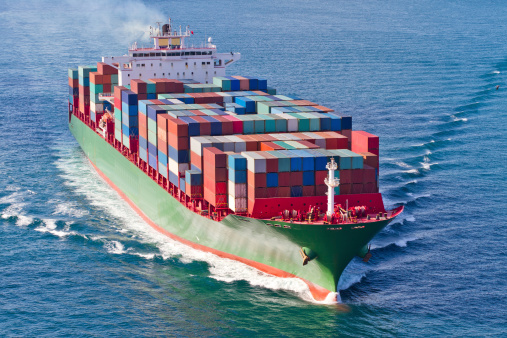The following article is the opinion of the author only and is presented for informational purposes only. All investment decisions must be done only after consulting financial, accounting and legal experts. Do not rely on items that you read on the internet or other sources with not first consulting these experts. Conservative Musing has no relationship with the author or is compensated in anyway for presenting this article.
Economy going down with the ship?
I’ve written about finance for decades now, and I know that, generally speaking, you like to read stories “top down.”
That is to say, I start with the economy in general, focus on a sector and then drill down to a stock, recommendation or advice.
What I’m going to do here is go in the reverse order. The reason is that one stock can sometimes tell a story more clearly than any macroeconomic observation.
Let’s take a look at Navios Maritime Partners (NYSE: NMM). This is a major global dry bulk shipper. Dry bulk means it ships dry cargo like fertilizer, iron ore, containers, coal and grain.
To put it another way, Navios ships all major commodities around the world. Interesting company that touches a lot of parts of the economy, yes. But how would a 50 percent dividend yield strike you?
That’s not a typo. That’s fifty, 5-0 percent.
So, here’s the thing about shipping companies, regardless of the broader economy. They’re wildly cyclical. And they are all usually set up to throw off impressive dividends to cover some of their ups and down. Every year the prices rise when there’s business and they fall when business slackens. In bad economies the stocks get very volatile.
In general, stocks dividends rise in relation to the stock price dropping. You can imagine what it means when one of the top shippers in the world is throwing off a 50 percent dividend.
It means its stock price is more than 50 percent from its 2008 lows.
As far as the stock goes, if you’re asking the question “’Is it a buy?” then the answer is the same as the answer to one of those Dirty Harry rhetorical questions: “Do you feel lucky?”
I do not.
I admire first responders to emergencies, but I don’t run into danger where investing is concerned. I may convince myself to go, but it’s not my preferred choice of action. There’s no reason to be a “first responder” investor.
So let’s step back from the stock and see what this stock says about the sector. If it makes its money selling raw goods around the world and its business is lousy, it means countries (and thus companies) are not buying a lot of goods to make buildings, infrastructure, crops and food products.
Add to that one of my favorite forward looking economic indicators, the Dry Bulk Shipping Index (BDI), is at five-year lows. That tells me the entire dry bulk shipping fleet is in the toilet.
And one more thing: more ships are being scrapped than were scrapped in the darkest days of the Great Recession. What’s more, the average age of a recycled ship was 30 years. Today, that average is down to 15 years.
No one is replacing the scrapped vessels with new ships, either. They’re scrapping old ships to get operating capital because there’s no real shipping business. Some tankers are regularly carrying more water ballast than cargo.
The fact they’re not rolling their money over into a new fleet is very scary. These ships are long-term investments. If these companies aren’t interested in buying new ships, it means there are some serious problems with the global recovery.
Like… it’s not recovering.
The further I step away from the stock, the better I see that stock in perspective and every step back it’s looking uglier and uglier. Yet so are the broad markets.
You want a stock tip? Generally, the markets sell off in September or October once traders come back from their palatial beach houses in the Hamptons and need to cover their summer spending. They sell off the market late in Q3 or early in Q4 so they can rally from those prices and make obscene bonuses for Christmas spending and winter holidays in Aspen.
Your best bet is not to get whipsawed by all this. Right now, I still say stick with gold and silver. I don’t care how you hold it, hold it somehow. I wouldn’t get fancy; don’t own it on paper. No leveraged ETFS, no miners, just gold or silver, whether physical or through an ETF that you are sure hold physical stores of precious metal.
A lot of people are becoming complacent with this economy. And complacency is dangerous. Gold and silver have had a pretty solid run since the beginning of the year and given central bank control of the global economy. They will continue to thrive and be great hedges against a market meltdown, whether short or long term.
And if you’re going to buy in, split your money between the metals. Silver has the momentum now, but gold should make a good run by New Year’s Eve.

No comments:
Post a Comment
Thanks for commenting. Your comments are needed for helping to improve the discussion.